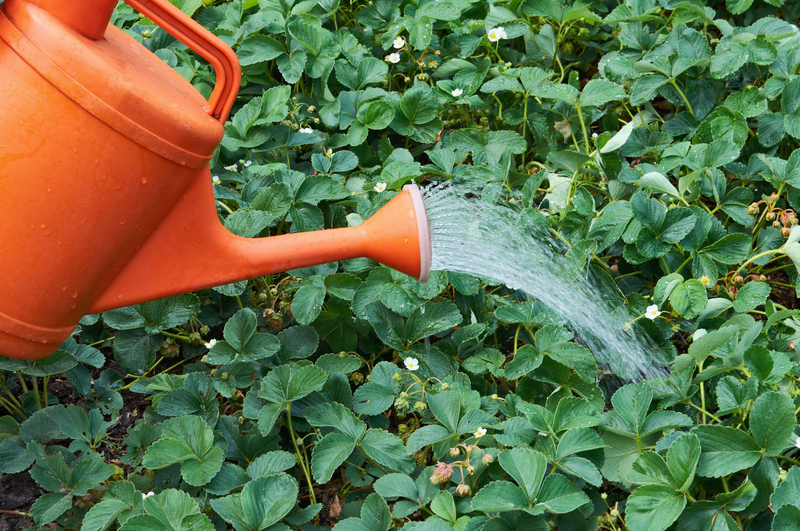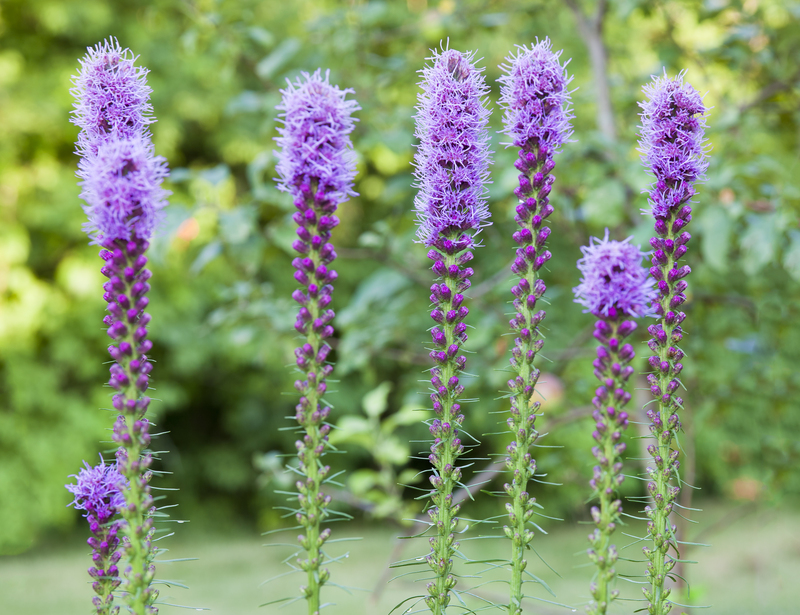Unearthing the Joy of Raising a Herb Garden
Posted on 24/09/2025
Unearthing the Joy of Raising a Herb Garden
Imagine stepping outside your door and plucking fragrant herbs mere moments before adding them to your favorite dishes. The magic of raising a herb garden is a blend of convenience, sustainability, beauty, and deep satisfaction. Whether you are a seasoned gardener or a curious beginner, nurturing herbs can enrich your life in delightful and unexpected ways.

Why Start a Herb Garden?
Starting an herb garden unlocks a symphony of benefits that go far beyond flavoring your cooking. Here are the reasons why so many people are gravitating towards herb gardening--both indoors and outdoors:
- Freshness: Nothing beats the vitality of just-picked herbs. The flavors and aromas of fresh basil, rosemary, or mint are unmatched by their dried counterparts.
- Health Benefits: Many herbs--such as parsley, thyme, and coriander--contain essential vitamins, antioxidants, and anti-inflammatory compounds.
- Cost-Effective: Growing your own herb garden can significantly reduce grocery bills. A packet of seeds costs less than a bunch of fresh herbs from the store.
- Sustainability: Minimize plastic waste and transport emissions by growing herbs at home.
- Therapeutic Value: Gardening relieves stress, fosters mindfulness, and provides a sense of accomplishment.
- Natural Beauty: Herbs add greenery, fragrance, and charm to windowsills, patios, and gardens.
Herb Gardening Is for Everyone
You don't need a sprawling backyard to begin your own herb oasis. Many herbs thrive in containers, windowsill pots, or community garden plots. Even urban dwellers with modest spaces can create abundant indoor herb gardens.
Best Herbs for Your Home Herb Garden
Selecting the right herbs is vital for maximizing the joy of your homegrown herbal haven. Start with these easy-to-grow favorites:
- Basil: The quintessential summer herb for pesto, salads, and Italian dishes. Basil loves warmth and plenty of sun.
- Mint: A vigorous grower, perfect for teas, desserts, and cocktails. Best planted in a container to keep it from spreading rampantly.
- Parsley: Impressively versatile and full of vitamins. Curly and flat-leaf varieties both flourish in containers or beds.
- Thyme: A hardy herb with small leaves that pack a punch. Excellent for roasting, soups, and stews.
- Rosemary: With needle-like leaves and an enchanting scent, rosemary thrives in well-drained soil and plenty of sun.
- Cilantro/Coriander: Essential for many international cuisines. Cilantro is best grown from seed and likes cooler weather.
- Oregano: The backbone of Mediterranean cooking with its robust flavor. Thrives in dry, sunny spots.
Specialty and Medicinal Herbs
If you want to branch out, try growing chives, sage, lemon balm, dill, chervil, or tarragon. For those interested in wellness, botanical varieties like lavender, calendula, and echinacea are valuable additions, offering soothing teas and homemade remedies.
How to Start Your Own Herb Garden
Choosing the Right Location
The success of your herb garden largely depends on providing the right environment. Most culinary herbs thrive in a spot with 6-8 hours of direct sunlight each day.
- Outdoors: South-facing beds or planters are ideal.
- Indoors: Place pots on bright windowsills, preferably facing south or west.
If sunlight is limited, consider supplemental lighting with LED grow lights.
Containers Versus Garden Plots
Container gardening is wonderfully versatile. Choose pots with drainage holes to prevent root rot. Herbs such as basil, parsley, and chives thrive in containers, while others like mint should be confined to pots to curb their vigorous spreading.
For larger spaces, raised beds or direct planting in garden soil allow you to curate a vibrant and accessible herb patch.
Selecting Soil and Fertilizer
Well-draining, fertile soil is a must. A blend of potting mix and compost provides the perfect texture and nutrients. Most herbs do not require heavy fertilization--overfeeding can reduce their flavor potency.
- Potted Herbs: Choose a high-quality potting mix and add compost for gentle feeding.
- Garden Beds: Prior to planting, enrich with organic compost or aged manure.
Watering Your Herb Garden
Overwatering is one of the most common pitfalls for herb gardeners. While most herbs prefer moist, not soggy, soil, some--like rosemary and thyme--thrive with less frequent watering. Check the top inch of soil for dryness before adding water.
Planting Herbs from Seeds or Starts
- Seeds: More economical and satisfying, but can take longer. Use seed trays for early starts indoors, then transplant outside after the last frost.
- Starts (Transplants): Faster and easier, especially for beginners. Purchase healthy young plants from nurseries or garden centers.
Pro Tip: Follow spacing guidelines on seed packets or plant labels. Overcrowding can stunt growth and promote disease.
Caring for Your Herb Garden
Pruning and Harvesting
Regular harvesting inspires bushy, vigorous growth. Pinch or snip herbs frequently, taking only a third at a time. For leafy herbs like basil, always harvest right above a leaf pair--this encourages new branches.
Pest and Disease Prevention
Herbs are generally resilient, but watch for aphids, spider mites, and fungal issues. Use organic methods like hand-picking pests, neem oil, or insecticidal soap. Proper spacing and air circulation help prevent fungal diseases.
Seasonal Care
- Summer: Water more often in hot, dry weather. Provide afternoon shade if needed.
- Winter: Bring tender herbs inside before frost. Prune and mulch hardy perennials in the garden.
Creative Ways to Enjoy Homegrown Herbs
Herb gardens open up a world of creative possibilities:
- Culinary Delights: Elevate salads, roast meats, pasta, smoothies, and desserts. Try fresh mint in lemonade or rosemary on roasted potatoes for sensational flavor.
- Herbal Teas: Steep fresh leaves of mint, lemon balm, or chamomile for soothing teas.
- Natural Remedies: Craft herbal tinctures, balms, and infusions from lavender, calendula, or echinacea.
- Aromatic Bouquets: Combine fresh and dried herbs for fragrant home decor.
- Homemade Gifts: Infused oils, vinegars, and sachets make heartfelt, aromatic presents.
- Preservation: Dry or freeze herbs at peak flavor to enjoy year-round.
Bonus: Teaching and Learning
Raising a herb garden is a wonderful educational opportunity for families and classrooms. Children learn about plant life cycles, sustainability, and the joy of growing food. Engaging with nature promotes curiosity and responsibility.
Herb Garden Inspiration for Every Space
Windowsill Wonders
Don't let limited space dampen your green thumb. Many herbs thrive on sunny windowsills. Try arranging basil, oregano, and parsley in decorative containers for a living, edible display.
Vertical Herb Gardens
Make the most of small patios and balconies with vertical gardening. Use wall planters, hanging baskets, or stacked pots to create a lush, space-saving tapestry of aromatic leaves.
Companion Planting in Vegetable Gardens
Mix herbs with vegetables--chives with carrots, basil with tomatoes, dill with cucumbers--to boost pest resistance and maximize yields. The intermingling textures are visually appealing and ecologically beneficial.
Accessible Gardening
Raised beds, tabletop planters, and easily accessible containers bring the joy of herb gardening to people of all abilities. Gardening can be adapted with ergonomic tools for an inclusive experience.
Tips for Success in Your Herb Garden Adventure
- Start Small: Focus on a handful of favorites. This allows you to learn each plant's quirks and needs.
- Label Your Plants: It's easy to mix up seedlings. Simple labels keep your garden organized.
- Rotate and Refresh: Keep indoor herbs moving for even growth and repot as needed to prevent root crowding.
- Record Keeping: Track successes and challenges in a gardening journal. Note sowing dates, harvests, and tips for next year.
Most importantly, enjoy the process. Mistakes are simply steps on the journey to greater gardening wisdom.

The Lasting Joy of Growing Herbs
Raising a home herb garden is an accessible, rewarding, and endlessly enjoyable pursuit. With just a little effort and care, you can fill your life with fresh flavors, beautiful scents, and green tranquility.
The world of herb gardening evolves with every season and every harvest--a process that connects us to nature, to our food, and to ourselves. If you've ever hesitated, now is the perfect time to discover the joys of cultivating a herb garden.
Start Your Herb Garden Today!
No matter your space, experience, or ambitions, there is a perfect herb garden waiting for you. Gather a few pots, choose your favorite seeds or plants, and begin unearthing the joy of raising a herb garden--one leaf at a time.
Happy gardening!
Latest Posts
Empower your garden to contribute to climate change solutions
A closer look at the joys of container gardening
Unearthing the Joy of Raising a Herb Garden

